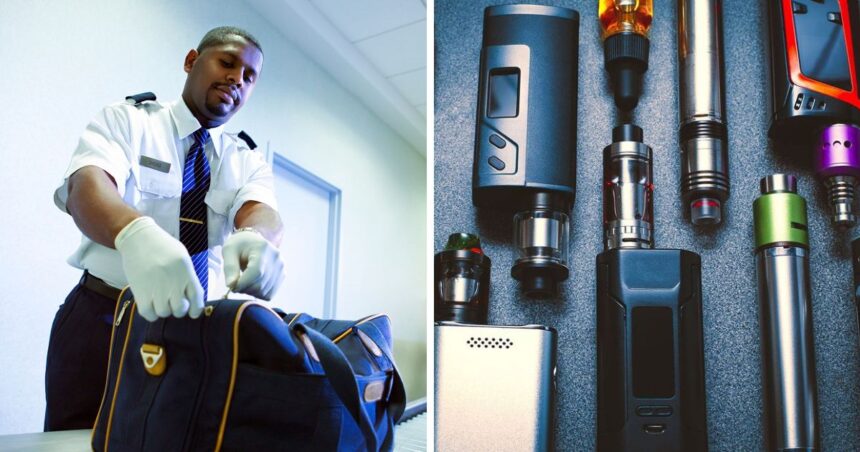
Key Points
- Where devices go: E-cigarettes/vaping devices must be in carry-on bags; checked baggage is prohibited. Violations can cause baggage delays and secondary screening.
- Safety requirements: Prevent accidental activation and use protective caps or cases; remove batteries where possible. Battery limits: lithium-metal ≤ 2 g lithium; lithium-ion ≤ 100 Wh.
- In-flight ban: Using e-cigarettes is prohibited at all times (including in lavatories); devices may not be charged or used onboard.
- Traditional cigarettes: May be carried on or checked, but smoking is fully banned onboard (per FAA rules).
- Alcohol carriage: Carry-on must follow 3-1-1 (≤ 3.4 oz / 100 mL per container in a 1-quart bag). In checked baggage, unopened alcoholic beverages between 24%–70% ABV are limited to 5 liters per bag; beverages under 24% ABV (e.g., wine, beer) have no overall quantity limit, though airlines may impose weight/quantity rules. Personal alcohol may not be consumed onboard.
- Official reminder: TSA’s social posts note, “The only clouds you should be chasing are outside the plane,” underscoring the ban on in-flight use and charging.
2Firsts, September 23, 2025 — According to inquistr, amid tighter aviation security and safety, the TSA has again clarified that e-cigarettes and electronic vaping devices must not be placed in checked baggage and must be carried on one’s person or in carry-on bags. TSA states the policy is intended to prevent thermal runaway and fire risks posed by lithium batteries in the sealed cargo hold. Recent screenings have found passengers hiding devices in checked bags, resulting in baggage delays and re-inspections.
Under current requirements, travelers carrying vaping devices should take measures to prevent accidental activation, such as using protective caps or cases, or removing batteries when feasible and storing them properly. For battery specifications, lithium-metal batteries may not exceed 2 grams of lithium content, and lithium-ion batteries may not exceed 100 watt-hours (Wh). Using e-cigarettes is prohibited throughout the flight, including in lavatories; activities such as charging a device onboard are explicitly banned.
By comparison, rules for traditional cigarettes are more permissive: passengers may place cigarettes in carry-on or checked bags, but smoking is prohibited anywhere onboard under FAA rules. For alcoholic beverages in carry-on bags, the TSA’s 3-1-1 liquids policy applies (each container ≤ 3.4 oz / 100 mL, placed in a 1-quart clear bag). In checked baggage, unopened alcohol between 24% and 70% ABV is permitted up to 5 liters per bag; beverages below 24% ABV (such as wine and beer) have no total quantity limit, though individual airlines may impose stricter limits based on weight or number of items. Note that consuming self-brought alcohol onboard is prohibited; inflight service is provided by the cabin crew in accordance with regulations.
TSA has also used a lighthearted tone on social media to remind travelers: “Keep your vape in your carry-on; don’t take it out while moving through the airport or on the plane. The only clouds to chase are the ones outside your window.” The message reinforces both the required placement of devices and the strict ban on in-flight use.
Overall, in air travel, e-cigarettes are treated more like regulated electronic devices than ordinary personal accessories: they may be brought on the aircraft only in carry-on baggage and must comply with battery limits and the full in-flight ban. Alcohol and cigarettes enjoy broader carriage options but remain restricted by onboard prohibitions or consumption limits. Travelers should review and follow the rules before flying to avoid screening delays and to help ensure flight safety.








